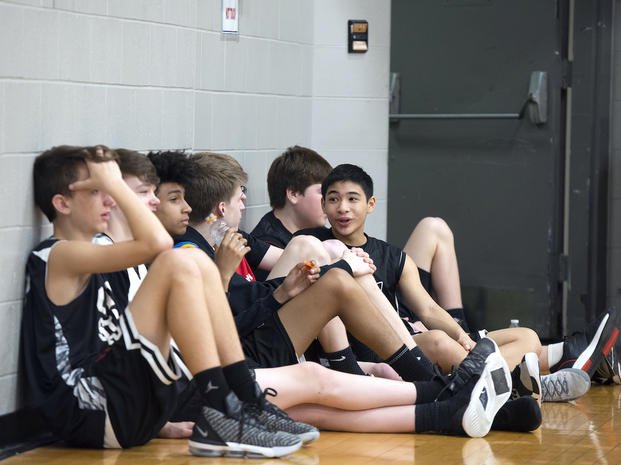They are called Generation Z -- they were born between the years of 1997 and 2012. They include most of our school-aged military kids, the newest members of the military and are the generation after Millennials. And there's plenty we can learn about communicating with our kids by paying attention to a few simple characteristics that define this generation of children, says Corey Seemiller, the author of "Generation Z Goes to College."
To find these characteristics, Seemiller researched kids in the Generation Z age group. From there, her team drew conclusions on how these kids and young adults prefer to act and interact with society.
Just like any generation, she says, people change based on the circumstances around them that are out of their control -- much like 9/11 impacted Millennials. So while some things about Generation Z are true today, they may not be as universally true in a year. For now, however, you can safely take these as a basic guide for talking to your Generation Z military kids.
3 Military Parent Tips for Generation Z
1. It's not all tech - they really do want face-to-face. While your military kid probably has his face buried in some sort of electronic device at some point in the day no matter how hard you've tried to keep him away or limit screen time, he likely really does crave quality time with you.
"We know they love to text, and they love their social media -- but they love face-to-face communication, too. They love quality time and they like to be in person," she said. "A lot of people seem to think that this generation is disconnected, but they're not. They are craving a connection that they are no longer offered."
Seemiller said even if parents are far away, they can still connect face-to-face using things like Skype and Facetime. It's not ideal, but it'll work. And maybe even trickier for parents (at least for me, I confess)? Remembering that to have that connection, you have to put down your phone, too.
2. They want to know about the world -- so you should tell them. Here's the truth: our kids are going to get information whether we help them or not. That's always been true on some level (think about your own elementary school conversations), but now, thanks to tools like YouTube, the world is literally at their fingertips. That means when it comes to hot button issues like world events and anything political (guns, the military, wars, you name it), kids are getting facts with whatever spin they happen to encounter.
Want to counteract that? Make sure you're the one telling them about the world, said Seemiller, but do it in a way that resonates with them. That means knowing that you're probably not the first source of information, but that you are an important one.
"The conversations parents have with their kids now demonstrate more critical thinking than actual information transferring," she said. "Instead of saying 'this is how it is,' say 'what do you know about this?' and talk it through. Not only will that help with the conversations but it will help them have the skills to sort through the information. Be the facilitator of information with them."
3. They want to change the world -- but not in the usual way. Seemiller's research pointed to a key difference in how Generation Z reacts to world events. Unlike Millennials, known for their apathy, these kids really do want to create change. And unlike Baby Boomers, who were known for protesting and civil disobedience, these kids are thinking outside the system. Instead of changing the political landscape, they are going around it.
"They are saying 'I'm going to solve this problem because no one else is going to be able to solve it,' and then they are inventing things, creating their own businesses ... they want to work around [the system] and try to solve the issues through entrepreneurship."
That means empowering your kids to think outside the box, too. Even though, as military families, we are firmly inside-the-box people culturally, we don't have to keep our kids there, too.
Keep Up with the Ins and Outs of Military Life
For the latest military news and tips on military family benefits and more, subscribe to Military.com and have the information you need delivered directly to your inbox.










